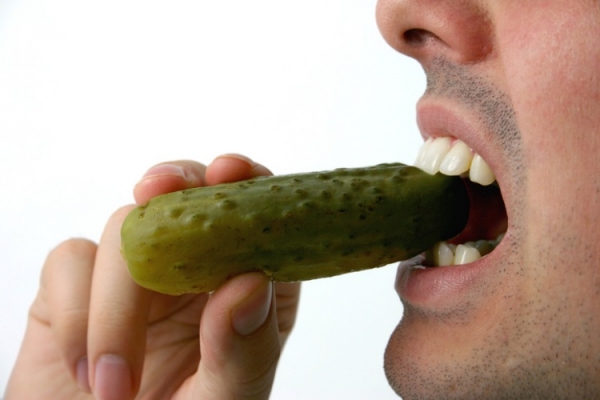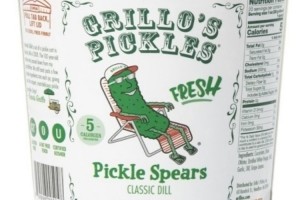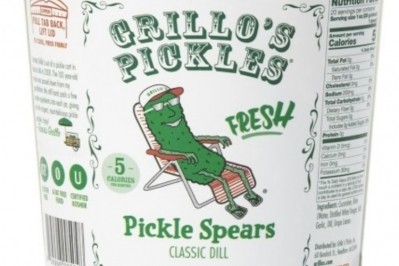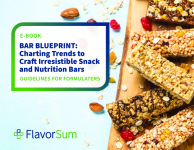Shocker: ‘All natural’ Patriot Pickle admits to sodium benzoate use

This action resulted in the judge setting aside Grillo’s preliminary injunction motion, but the plaintiff is not satisfied and plans to pursue its claims.
To recap
On 3 January, Grillo’s Pickles, Inc. filed federal Lanham Act and common law unfair competition claims against Patriot Pickle Inc., ARKK Food Company and Wahlburgers I, LLC for allegedly misleading consumers and retailers by labelling and marketing Wahlburgers pickles as ‘fresh’, ‘all natural’ and containing ‘no preservatives’.
This alleged charge was brought to light in filings to the United States Court for the District of New Jersey, with Patriot admitting to the use of sodium benzoate, a chemical preservative.
According to the complaint, lab tests found sodium benzoate in Wahlburgers Hot Dill Chips in concentrations of up to 641ppm, in its Dill Chips (600pm) and Dill Spears (424ppm).
Sodium benzoate (also known as benzoate of soda) is the salt of benzoic acid and is soluble in water, tasteless and odourless. It’s widely used by the food industry as a food preservative and pickling agent, inhibiting the growth of bacteria, yeast and mould.
The chemical was the first of all food preservatives to be approved by the FDA (in 1987) and sports the GRAS (generally regarded as safe) status if consumed in amounts of less than 5mg/kg of body weight per day (max usage in food is 0.1%).
However, excessive consumption has been found to cause mutagenic effects, generate oxidative stress, disrupt hormones and reduce fertility.
According to the plaintiff, this misleading labelling, combined with the similar packaging and near identical taste to all-natural Grillo’s, has harmed its bottom line by diverting customers away from the brand and to Wahlburgers.
The truth comes to light
Placed on the spot, Patriot coughed up to the use of sodium benzoate, but assured it had ‘taken voluntary corrective action to ensure future shipments of Wahlburgers pickles will be sodium benzoate-free, thus giving Grillo’s the relief it seeks’. It added whatever benzoate-pumped pickles remained were past their best by date and therefore ‘unlikely’ to be on store shelves.
Following these developments, the judge decided to set aside Grillo’s preliminary injunction motion.
“As we’ve said before, at Grillo's Pickles, we’re committed to ingredient transparency and we continue to stand by that,” said Adam Kaufman, president of Grillo’s Pickles.
“It’s important that our competition is honest when listing out their ingredients and we’re glad to have helped the truth come to light.”
However, the Massachusetts-based company - which is owned by bakery company King’s Hawaiian - is not going to let it rest that Pickles ‘stole’ its 100-year-old recipe.
The pickle partnership between the two began in 2012 with Patriot handling the manufacturing, packaging, labelling and shipping for Grillo’s. The union was terminated in 2021, but Grillo’s claims Patriot did not return all of its copies of the recipes.
So, in an additional filing in June, Grillo’s contended Patriot is using its proprietary recipes to produce a line of pickles for Whole Foods’ 365 portfolio, which comes in at a lower price point than branded goods. Whole Foods is also a major client for Grillo’s.
Organic acid profile tests were conducted to prove the abuse of Grillo’s trade secrets by Patriot - which stands in violation of the Defend Trade Secrets Act, the Florida Uniform Trade Secrets Act and contracts between the two pickle agents.
While the Jersey court ruled that Grillo’s does get to reassert its motion in the future should Patriot resume the use of the sodium benzoate, the begruntled producer wants its pound of flesh.
It is continuing to pursue for damages under the Lanham Act and unfair competition law, along with claims the Whole Foods 365 pickle line was manufactured in breach of trust.
Lawsuit
Grillo’s Pickles vs Patriot Pickle Inc., ARKK Food Company and Wahlburgers I, LLC; case number 2:23-cv-00011; filed in New Jersey on 3 January 2023.





















